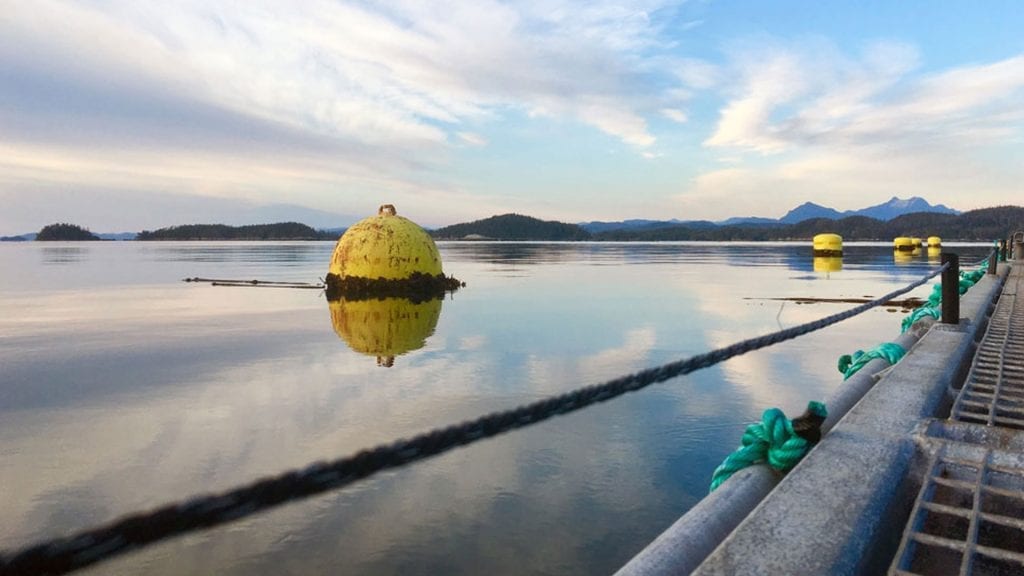
An open-net salmon farm in Canadian waters. APTN file photo
Canada’s Liberal government has decided to phase out controversial salmon farms off the coast of B.C.
The announcement was made Thursday afternoon and greeted with joy by opponents.
“I’m very grateful for the announcement today,” said Bob Chamberlin, chair of the First Nations Wild Salmon Alliance.
“This will protect the wild salmon of B.C. that have been on a downward spiral towards extinction.”
There was no immediate response from the industry Thursday.
Department of Fisheries and Oceans
Fisheries Minister Bernadette Jordan said the decision not to renew the licences of the open-net fish farms in the Discovery Islands came after hearing from seven area First Nations.
“We spent the last few months doing consultation with those First Nations and we heard overwhelmingly that they wanted to have those fish farms removed,” she said of meetings with the Homalco, Klahoose, K’ómoks, Kwaikah, Tla’amin, We Wai Kai and Wei Wai Kum.
The farms are run by companies based in Norway, who raise Atlantic salmon in Pacific waters.
Jordan said the 19 sites would be phased out over 18 months to allow existing fish to “grow out” of the farms.
According to DFO, only nine of the sites contain fish while the others sit empty.
“No new fish would go into the pens once those fish have been harvested,” Jordan said.
“Nobody wants to cull three million fish. We want to do this in an orderly way, in a fair way.”
Farmed fish
The majority of the farmed fish are expected to be out of the pens by April, 2021, Jordan added.
“This was a very difficult decision because there are a number of people who will be impacted by this decision.”
The industry made billions and employed hundreds of people and has recently been running promotional videos on social media promoting the industry.
But it was blamed for contributing to the decline of the wild Fraser River salmon population after scientists discovered sea lice and other parasites were being transferred between the species.
The fish are an integral part of First Nations food and culture in B.C.
On shore
Earlier this year, 102 First Nations called for the farms to move on shore instead.
“Many of us have fought for a long time for the appropriate protection of wild salmon in B.C.,” said Chamberlin.
“There is a long road of recovery yet ahead.”
Biologist Alexandra Morton agreed, and said it was First Nations who saved the fish.
“This is a historic moment. This is the moment when the decline of the Fraser River sockeye is going to turn around.”
One-third
Morton said one-third of all of B.C.’s wild salmon was swimming through the Discovery Islands and “colliding with the waste of seven million Atlantic salmon. The farms should never have gone there.”
There were numerous studies done by government and independent scientists like Morton with varying results.
Morton said the fight took decades but ended the right way.
“What must have happened here was the government must have realized how bad the situation had become,” she said.









